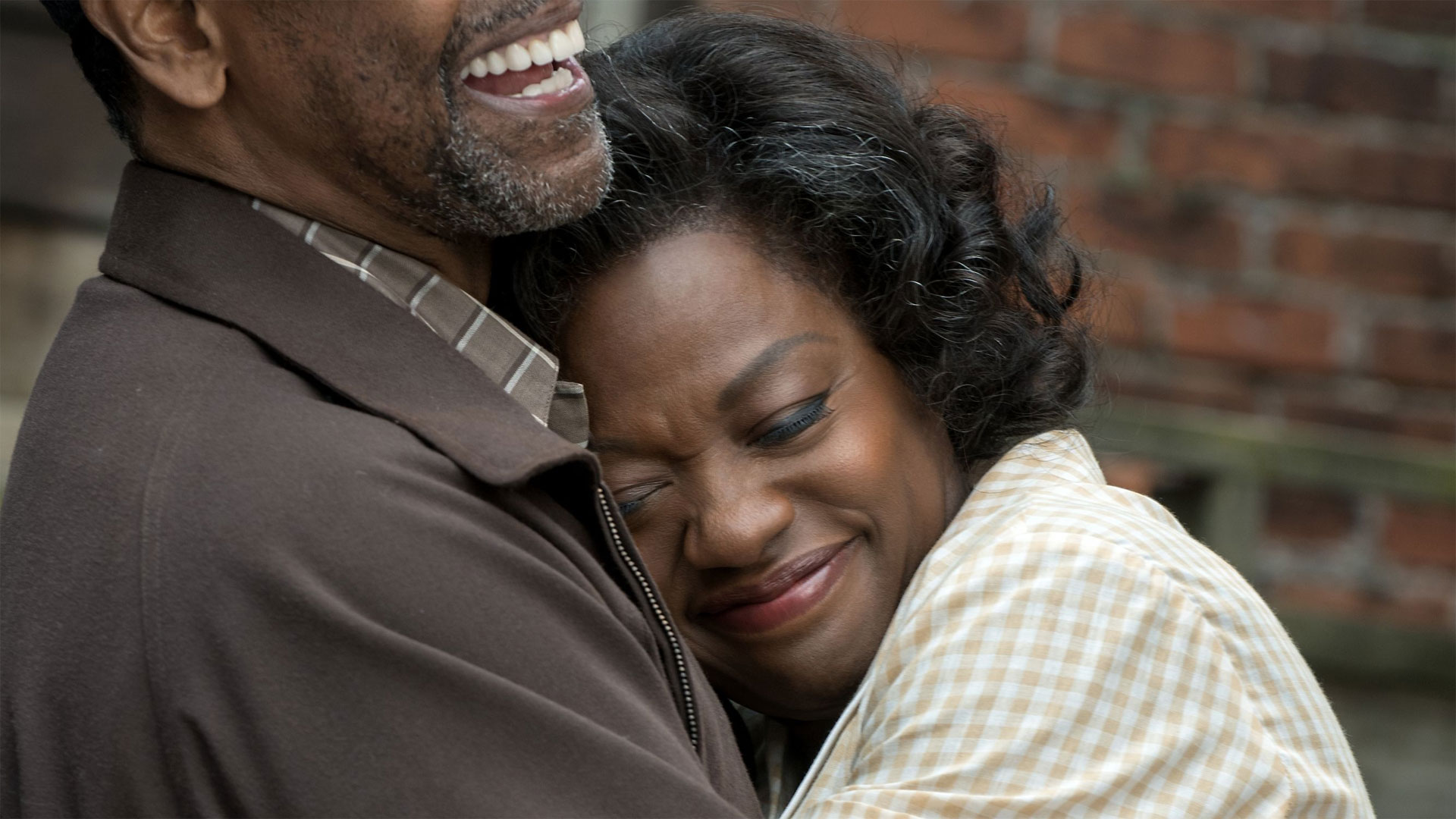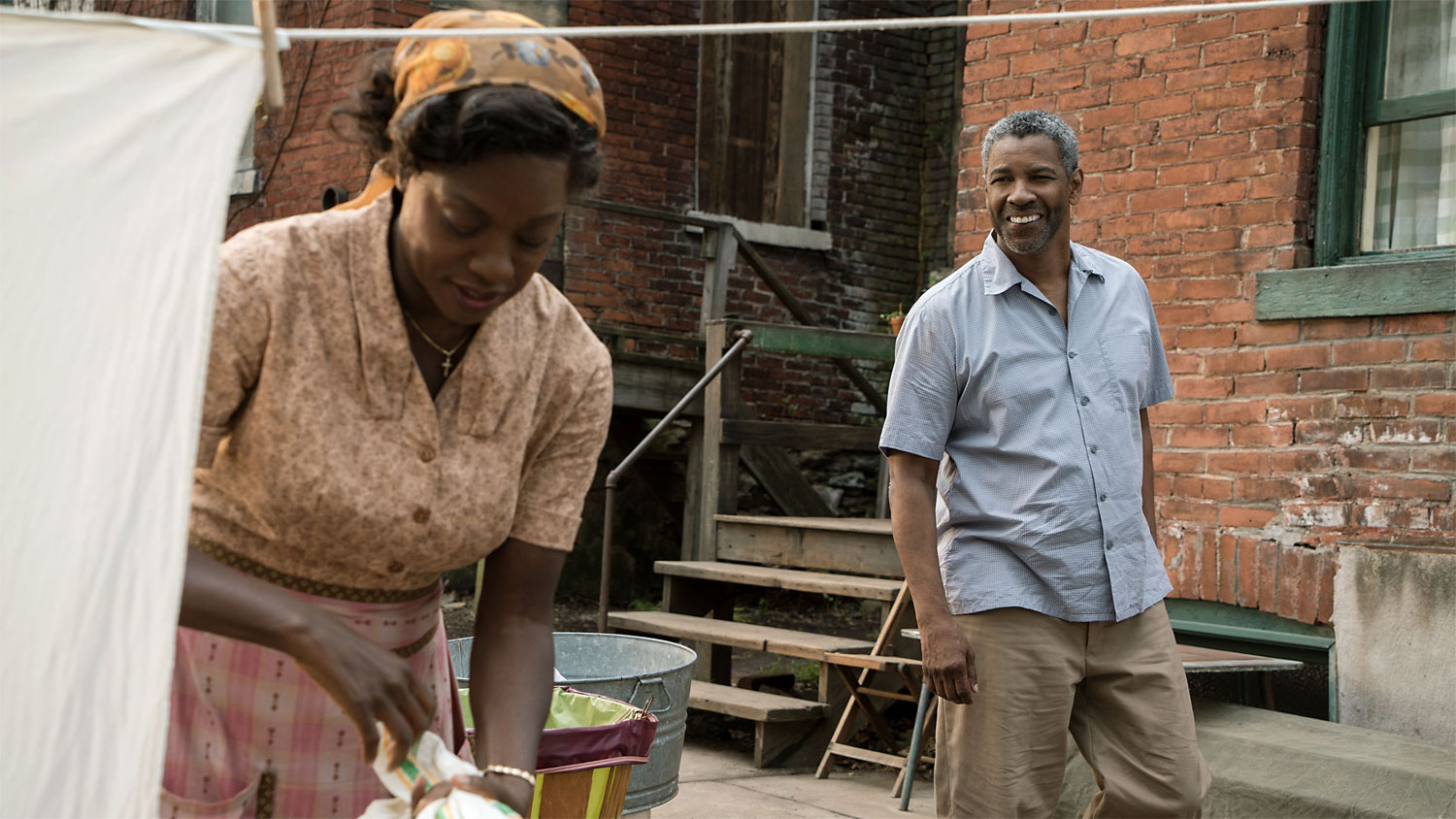Viola Davis Challenges the System: If a Movie Isn't Diverse, It Shouldn't Be Allowed to Win an Oscar
"Art has got to be inclusive. The landscape of America is not what it was. The demographics have changed."

Hollywood isn't exactly known for its progressive approach to onscreen representation (see: #OscarsSoWhite rounds one and two), but 2016 delivered several films that break the norm—including Fences. The Denzel Washington-directed movie is based on a play by August Wilson, and chronicles the unraveling marriage of a black couple in 1950s Pittsburgh.
MarieClaire.com spoke to Viola Davis (side note: she 💯 percent deserves an Oscar for this magnificent role) about Fences' feminism, why the Academy should pull a BAFTAs and demand diversity, and—oh yeah—the time she was recognized by fans while peeing.
Marie Claire: The BAFTAs just announced that starting in 2019, they'll only consider films that are diverse in representation both on and off screen. Do you think the Academy should do the same?
Viola Davis: "Yeah, I think it would be absolutely wonderful because here's the thing, sometimes people need to be thrust into change. You do. Change is something we avoid because we just migrate to what we're used to—not to what's right. Any change that's ever come has come at a point in history where it's violent and it's passionate. It's like a famous motivational speaker said: 'If you're afraid of diving into something, then just dive into it afraid.' That's what I believe should happen with the whole diversity issue. Art has got to be inclusive. The landscape of America is not what it was. The demographics have changed. Everyone is fighting, they are hungry to see their own images. It can sell, and it can be great. We have to know that. I don't think it's stifling voices, either. I think it's encouraging voices. So yes, I think it would be wonderful if the Academy was asked to do the same."
"Art has got to be inclusive. The landscape of America is not what it was. The demographics have changed. Everyone is fighting, they are hungry to see their own images."
MC: What can Fences teach us about early feminism? History books have white-washed the feminist movement, but the real history of powerful women is very intersectional, and I loved how Rose made her voice heard while still sticking to her traditional role as "wife."
VD: "Absolutely, that's the beauty of what Wilson wrote. He wrote a liberated women in 1957. I don't think Rose is aware that's who she is, she plays the role that was given to her in 1957—a year that had the highest rate of alcoholics, the highest rate of depression at that time. Our only role was in the house, and that's when we meet Rose. In the house. That's where her purpose lies until it's taken from her. That's where a person's true nature comes out—whether they're going to sink or swim. When it's taken away from Rose, you see how she swims. Her moment of liberation comes when she realizes she contributed to the demise of her marriage, and the demise of herself. To me, that's true liberation. Strength, to me, is the internal struggle of stepping into one's self. That's what Rose does."
MC: So many of the issues we're dealing with as women now are the same as they were in the '50s—decades later.
Get exclusive access to fashion and beauty trends, hot-off-the-press celebrity news, and more.
VD: "When I was a young women, you just kind of fell in step with whatever role society gave you. There's an idea that there's a definitive definition of success—until you get to middle age and realize success is an individual definition of what will make you happy. What will fulfill you in life. Coming to that conclusion is a path of self-awareness, and is completely separate from what society has defined. It's very hard for women—because women today, our roles are a reaction to not wanting to be like our moms were. But what does that mean? We still have the highest rate of binge-drinking. We still are overly stressed. We still have a really skewed definition of what strength is. Rose realizes that the only answer to where she needs to go in life lies within herself. That's the biggest message the movie gives to women. The only answer lies within you."

MC: Apparently, August Wilson once said of his early plays "I didn't recognize the poetry in everyday language of black America. I thought I had to change it to create art." That's such a beautiful quote, and Fences certainly celebrates that poetry; it's an extremely dialogue-driven film. Is that part of what drew you to the role?
VD: "Yeah, it's what draws me to August Wilson, the language, the poetry of the language, and his way of expression simple emotions in a way that's heightened. The other thing that drew me is the writing in general—the journey of the characters. No character is superfluous in this narrative. There's no character that comes in at the ninth hour as a device. Everyone exists on their own terms. To play a fully realized character...there are no words to describe that a gift that is to the actor."
MC: Denzel Washington recently did a Reddit AMA and was asked the weirdest situation he's found himself by accident. So obviously, I have to ask you the same question.
VD: "The other night I went to the bathroom in a restaurant, and these two women were talking and were like 'oh my god, you look like a famous person.' I was like, 'oh, yeah.' So I went into the bathroom stall, pulled my Spanx down—two of my Spanx down—and as I sat on the toilet, they said 'You're Viola Davis!' As I was peeing. And I said, "Yeah, that's who I am.' They said, 'What's going to happen in How to Get Away with Murder?!' So, as I'm peeing, I'm basically telling them, "Yeah, I'm Viola Davis, yeah, etc. etc...." And I'm trying to pee reallllly quietly."
Follow Marie Claire on Facebook for the latest celeb news, beauty tips, fascinating reads, livestream video, and more.
Mehera Bonner is a celebrity and entertainment news writer who enjoys Bravo and Antiques Roadshow with equal enthusiasm. She was previously entertainment editor at Marie Claire and has covered pop culture for over a decade.
